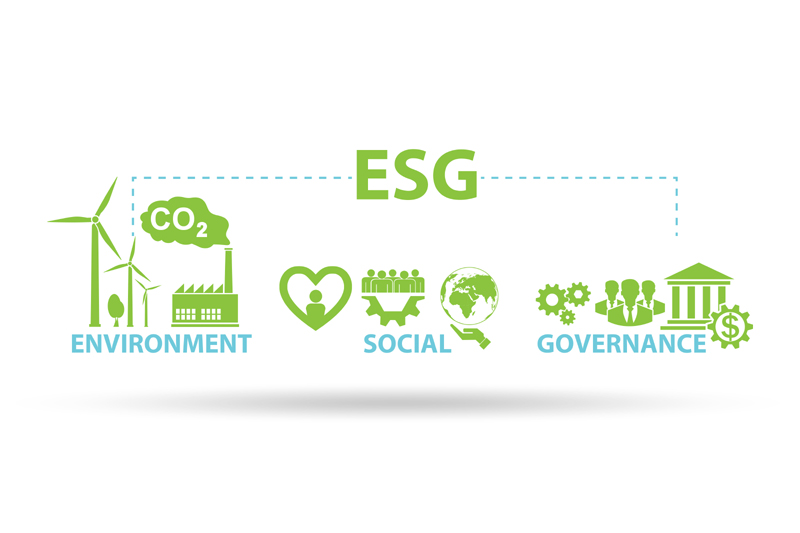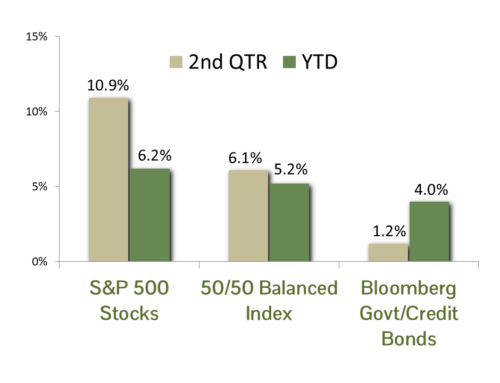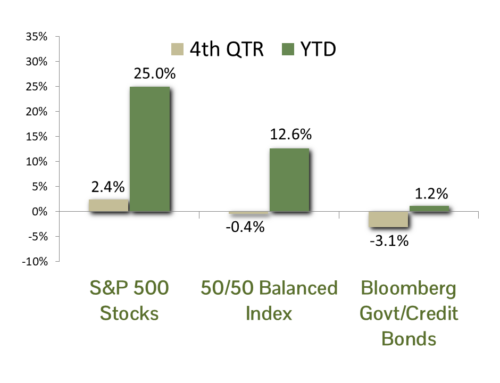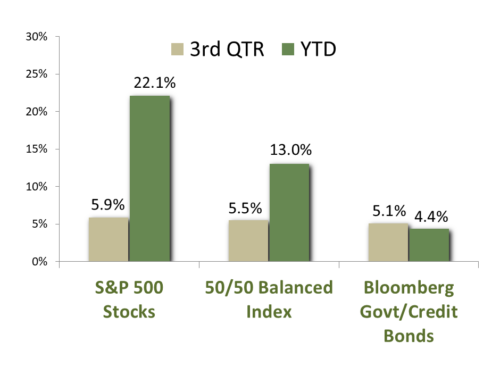Recently we’ve had clients and friends ask us for our thoughts on ESG investing. As it turns out, it is a very complex topic with a number of layers that this post will attempt to unpack.
To begin, ESG is an acronym for Environmental, Social and Governance which refers to the widely used standards of yet another acronym: SRI, which stands for Socially Responsible Investing. The thesis of SRI is that investors drive the allocation of capital within the market place. Through their investment decisions, investors having goals other than pure profit – such as reducing carbon release to pick a popular one – can influence the behavior of companies through their allocation of capital. Their purchase of stock may encourage companies to follow their objectives by providing demand (and therefore price support) for the shares and conversely, their sale or lack of ownership interest may have the opposite effect.
At a high level, SRI may be very noble and may achieve some of the sought-after results. However, there are a number of logistical challenges. One of the more subtle problems is that ESG objectives can themselves be in conflict. A company may be producing a product that is environmentally friendly while being a disaster from a corporate governance standpoint. Tesla is an excellent example. The company produces electric vehicles that are promoted as environmentally friendly, but no one would argue that Elon Musk with his tweets (“going private at 420”) is a paragon of corporate governance.
Social goals can be particularly problematic. Normally interpreted as being “worker friendly policies,” this implies current popular concepts such as family leave policies or living wages. Uber is often cited as part of the vanguard of the “sharing economy,” which supposedly improves utilization of personal assets while offering part time profit opportunities for car owners and improved access for riders. Sounds very utopian, but when one analyzes the full costs Uber drivers encounter – like fuel costs or depreciation on vehicles – we learn that their wages are quite low. Similar arguments exist for Airbnb, which empowers homeowners with income opportunities, but which can have terrible effects on neighborhoods.
Second and third order effects of products must also be considered. Video game production is generally seen as a pollution free industry – no smoke or waste products. But what is the impact on society of a generation of children living in virtual realities who are unable to communicate or worse yet, are desensitized to death through graphic and realistic violent scenarios that are part of their games?
Perhaps even more insidious, capital allocation decisions that seem on the surface to be obvious, may, in fact, have effects that exacerbate situations. Fossil fuel extractors such as oil companies are seen by many as targets. However, denying capital to these companies may limit their ability to develop alternative energy sources.
Even if an investor is able to sort out the high level problems and establish an orderly framework for evaluating companies on their ESG characteristics, the challenge of performing the actual research is daunting. Given the popularity of SRI, several companies have sprung up offering SRI ratings for publicly traded companies, which in turn are used by a large and growing collection of mutual funds, electronically traded funds and investment managers which tout themselves as adhering to ESG criteria. BusinessWeek recently dropped an article that delved into the practices of some of the rating companies and found the whole rating process fraught with conflicts and process problems. I also recently visited the website of a group promoting SRI which offered a number of white papers on related topics as well as a lengthy list of SRI mutual funds, ETFs and investment advisers. However, most of these investment vehicles were relying on the ratings of a handful of companies at least one of which was specifically critiqued in the Business Week article.
So, in the words of an environmentalist friend of mine, “what’s a socially responsible investor to do?” The reality is that SRI, well done, is a difficult task. Not impossible, but one which requires a great deal of work. First, investors must define and prioritize those characteristics which are important to them personally, recognizing that it is likely impossible to achieve all goals. Having established such a framework, investors must put in a tremendous amount of work to assess their potential investments. Be skeptical of the claims of ESG rating companies – do the hard research and understand the depth of their evaluations and rating frameworks. And last, but not least, approach the task with a dose of humility because the reality is that every human activity leaves a footprint.



